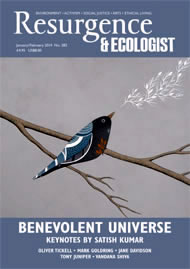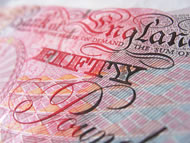The Trouble with Billionaires skilfully conveys the truly extraordinary extent of inequality in the UK and other nations where greed has been transformed from a sin to a virtue. The book is well-researched, well-written, tightly reasoned and very readable; even humorous at times. The authors go beyond a mere chronicle of the excesses of the super-rich and their negative impacts on society. Instead, they present well-reasoned and principled arguments as to why the accumulation of great wealth is itself a morally and socially bankrupt goal.
The book challenges myths about the extremely wealthy, such as the belief that they must deserve their unimaginable riches; that they somehow earned their wealth through extraordinary efforts or insight or innovation. The authors argue that, to the contrary, the common treasury of human knowledge – accrued over ages by millions of increments – is the true foundation for today’s wealth-producing activities. And those who make marginal contributions are generally rewarded as though they are responsible for the entire series of innovations that have been enhanced by their relatively smaller improvement.
More often than not, those who acquire extreme wealth do so because they not only exploit this common treasury of knowledge and public infrastructure, but do so ruthlessly, pushing aside at least equally able and often more worthy innovators. Because this common treasury belongs to the whole of society and is shared freely through education, libraries and government services, Linda McQuaig and Neil Brooks argue that part of the wealth that is generated by the extremely rich rightly belongs to society in general and should be used for the common good.
The history of extreme wealth accumulation is also often the history of illegal activities, later legitimised by the capture of the political process with the excess wealth generated by these activities.
The authors trace the very deliberate role of the plutocrats in the promotion of their own financial interest through the funding of think tanks, control of the media and adroit use of philanthropy. Riding this wave, Margaret Thatcher and Ronald Reagan turned the earlier 20th-century trend toward equality backwards, enabling the ‘return of the plutocrats’ through changes in regulation and tax structure. But the politicians did not accomplish this on their own initiative. The Trouble with Billionaires presents a strong case for how the super-rich use their extreme wealth to set the political agenda for their own gain. The authors are deeply concerned that current conditions of extreme inequality in wealth are incompatible with democracy; we have instead, they say, a functioning plutocracy.
McQuaig and Brooks effectively demonstrate that extremes of wealth are bad not only for democracy, and a range of social and health indicators, but also for a vibrant and stable economy. They dethrone the wealthy elite from their place of prominence and clearly outline the false premises underlying mainstream assumptions about the virtues and importance of the wealthy.
The UK version of The Trouble with Billionaires also connects the dots linking the role those with extreme wealth play in thwarting effective climate legislation. The authors argue that the “failure to tackle the climate change crisis is the most potent illustration of how the rise of a global plutocracy…has undermined…democracy to the point that the world community appears to be losing its ability to protect itself,” potentially threatening human survival.
This is an important and courageous book because it challenges many of the generally accepted myths regarding wealth accumulation: that extreme wealth is a just reward for hard work and brilliant innovation; that the lion’s share of wealth generated belongs to the innovators rather than to society in general; that inequality can be handled by the poor working harder and thus generating wealth for themselves; that the rich make a fair return of the benefits they receive through creating employment and engaging in philanthropy; that climate change deniers are an independent group who base their position on science rather than self-interest; and that there is little that can be done to regain control of either politicians on the take or an economy designed to continue enriching the already super-rich.
Importantly, a programme of tax reform is outlined that is designed to reverse the fortunes of the plutocrats and return democratic control of the economy to the majority.








